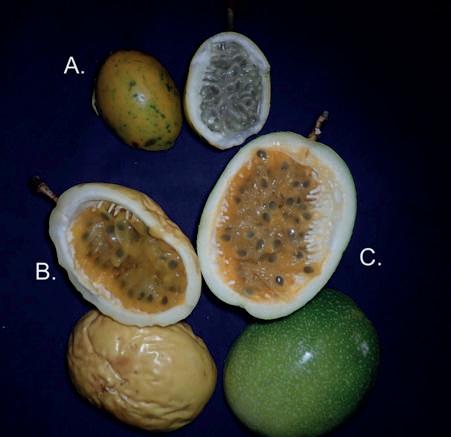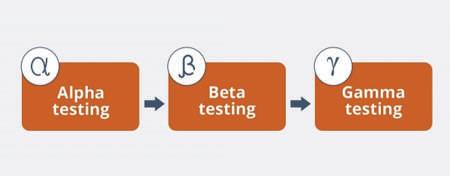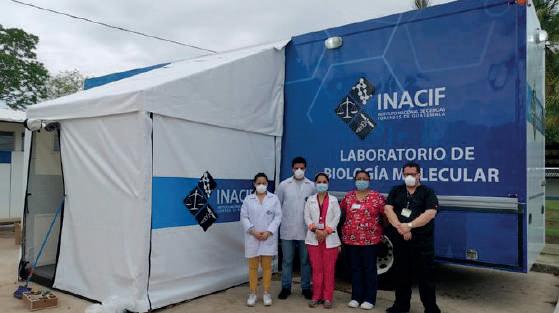Willy Peitzner. Revista CientĂfica DiĂĄlogo Forense. Sistema de informaciĂłn. Num. 2, Vol. 2, AĂąo 2020, pp.1-11
DiĂĄlogo Forense Num. 2, Vol. 2, 2020 ISSN: 2707-8477
Sistema de información para el registro, atención y consulta de personas fallecidas en atención a la enfermedad por COVID-19 del Instituto Nacional de Ciencias Forenses Willy Peitzner Rosal Sección de Desarrollo de Software Instituto Nacional de Ciencias Forenses de Guatemala –INACIFwpeitzner@inacif.gob.gt
RESUMEN Ante la inminente llegada de pandemia del COVID-19 a Guatemala, el Director General, Fanuel Garcia Morales, instruyĂł diversas acciones a efecto de preparar al INACIF ante posibles escenarios que se habian observado en otros paises, y evitar que se generara en Guatemala un desorden en cuanto al manejo de cadaveres por fallecimientos derivados de la pandemia. Entre esas acciones, estaba la de preparar un sistema de registro centralizado de cadĂĄveres que evitara la inhumaciĂłn masiva de cadaveres sin identificar, evitando asĂ el sufrimiento postergado de los familiares ante la incertidumbre de la situacion real de sobrevivencia o fallecimiento de un ser querido. Esta idea conceptual del proyecto del Director General, fue encomendada al Ă rea de InformĂĄtica, desde donde tuve la experiencia de materializar el proyecto al que hago referencia en este artĂculo. Como resultado de las mesas de trabajo interinstucionales, en las que el Instituto Nacional de Ciencias Forenses de Guatemala tuvo participaciĂłn, se estableciĂł un marco de trabajo y los actores para la atenciĂłn de personas fallecidas con sospecha de causa de muerte por COVID-19. El Centro Forense de Apoyo Virtual -CFAV- es la iniciativa que se desarrollĂł para dar trazabilidad y apoyo al registro de personas fallecidas a causa de coronavirus (COVID-19). En el marco general de este proyecto se contemplĂł el desarrollo de funcionalidades para el registro por parte de las autoridades competentes en el lugar de levantamiento del fallecido, atenciĂłn, mecanismos de comunicaciĂłn utilizados, la generaciĂłn de un informe de defunciĂłn cuando correspondĂa por parte de personal pericial del Instituto, y mecanismos de consulta en atenciĂłn a deudos. Como parte del apoyo interinstitucional se ampliaron las funcionalidades generales en las que se incluye el registro de personas fallecidas por personal del Sector Salud de Guatemala y el registro de inhumaciĂłn por parte de personal administrativo de los cementerios registrados dentro del sistema. Para el desarrollo de la plataforma se emplearon buenas prĂĄcticas recomendadas en SCRUM y para el seguimiento, se utilizaron herramientas de videollamadas y gestiĂłn de proyectos.
4
Palabras clave: COVID-19, SCRUM, metodologĂas de desarrollo ĂĄgil, gestiĂłn de proyectos de software, CFAV, manejo e identificaciĂłn de cadĂĄveres, colaboraciĂłn interinstitucional Key words: COVID-19, SCRUM, agile development methodologies, software project management, CFAV, corpse management and identification, inter-institutional collaboration.
ABSTRACT To face the imminent arrival of COVID-19 pandemic in Guatemala, the General Director Fanuel Garcia Morales instructed several actions to prepare the INACIF for possible scenarios that had been observed in other countries and prevent a mishandling the corpses in Guatemala. Among those actions, was to prepare a centralized registration system for corpses to avoid the massive burial of unidentified corpses and in that way to prevent the suffering of family members in the face of the uncertainty of the real situation of survival or death of a loved one. This conceptual idea of the General Director's project was entrusted to the Information Technology Area, from where I had the experience of materializing the project to which I refer in this article. As a result of the inter-institutional working groups, in which the National Institute of Forensic Sciences of Guatemala participated, a framework and actors were established for the care of deceased people with suspected cause of death from COVID-19. The Virtual Support Forensic Center -CFAV- is the initiative that was developed to provide traceability and support to the registration of people who died from coronavirus (COVID-19). In the general framework of this project, the development of functionalities for the registration by the competent authorities at the place of removal of the deceased, communication mechanisms used, the generation of a death report and mechanisms of consultation in attention to the deceased relatives. As part of the inter-institutional support, the general functions were expanded, including the registration of deceased people by personnel of the Guatemalan Health Sector and the registration of burial by administrative personnel of the cemeteries registered within the system. For the development of the platform, good practices recommended in SCRUM were used and for the follow-up, video calling and project management tools were used.







